Menu
|
photos by May Arida. 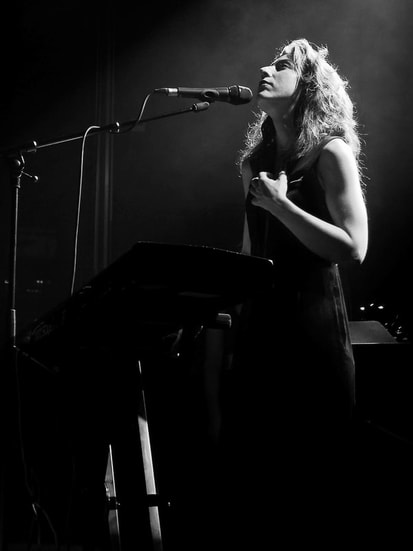 As we all know there are two types of Americans (like everything in America exists twice, once in a bearable, once in an unbearable way): on the one hand we have the cacophonous Americans, represented by Donald Trump. On the other hand we have the introspective Americans. Julia Holter, the avant-garde pop musician from Los Angeles, belongs to the second group. She herself suffers a great deal from the cacophony of some Americans. When she does she often goes back to her studio for a cathartic recording session. Originally cathartic meant to purge the body of unwanted material. Nowadays the expression is also used to describe emotional release and spiritual cleansing. I meet Julia Holter for an interview one hour before her concert in Zurich to present “Aviary”, her most recent album. “When talking about your new album, you often use the word cathartic. What is the unwanted material you want yourself to purge from?,” I ask her. “I don’t really know,” Julia Holter says. “For this record I was recording myself improvising and then I created my new songs starting from these improvisations. And while improvising, I felt ecstatic, sort of hypnotic and in the moment. It felt therapeutic in a way. But therapeutic is the wrong word too because it was more intense than that. It kind of put me in a space of something. In a space for me to be in.” As Julia Holter has said herself in a previous interview: she finds it hard to be articulate sometimes. She actually finds it hard to communicate sometimes. Julia Holter is a rather shy person, a bit nervous when talking to strangers and despite her success with critics and the audience alike, she is not always quite sure about herself. When interviewing Julia Holter one doesn’t get prefabricated replies. She is a seeker who probes, considers and weighs every statement before it is formulated. For a humble, no-show-off-person like Julia Holter, “I don’t know” is a possible answer too. Julia Holter’s albums are a daring and unique mix of experimental sounds and familiar melodies based on her profound understanding of the history of music, be it pop or jazz. On “Have You In My Wilderness”, her record of 2015, Julia Holter uses strings that feel like a slow camera drive in a documentary film on the history channel, showing objects that in their primetime meant something to somebody but don’t belong to anybody anymore today. Last year’s “Aviary” is full of instrumental parts where the listener is left alone with his or her thoughts. What is it exactly that fascinates me when listening to Julia Holter? It is the yearning that she conveys. The yearning for a beautiful dream. How does Julia Holter perform her music live? Surprisingly very close to the versions recorded in the studio. Her band (consisting of percussions, a stand-up double bass, synthesizers and keyboards, plus a violin and a trumpet) is able to recreate and provide the chamber pop experience the audience came for. The muted trumpet played by Sarah Belle Reid is masterful, particularly in a duet with Julia Holter singing and playing keyboards on “Voce Simul”. Julia Holter and her instrument are positioned closed to the edge of the stage; she mostly has her eyes turned towards the ceiling, fixing a point somewhere in the middle of the room. The stage is dimly lit and when the spotlights are on, they are rather directed towards the band than towards her. In between her trips to a musical fantasyland one can even tap his foot and dance to Julia Holter’s music. “You are asking a lot from your listeners. How do you find your audience with music that sounds complex and is not easily consumed?,” I ask Julia Holter during the interview. “I don’t know how complex my music is,” she replies. “I am not like ‘I want this record to be complicated’. A lot of people I know who don’t make ‘commercial music’ are not thinking about the audience when they are composing, to be honest. In the end it’s really doing what you want to do and that is all you can do actually. It’s not that my music is not for an audience, it’s just not for a specific audience." “Could you write a number one chart hit?” Julia Holter is slightly surprised when hearing my question. “Chart hit? I don’t know,” she says. “It doesn’t occur to me to do that. I am told that people writing for the charts strategize and I am not strategizing at all what I do. It’d be cool to have a chart hit though, I am not against it.” "I want to embrace mystery and embrace things that I haven’t heard before.” Recently, I tell Julia Holter, I met a musician who told me that he is always looking for the resistance in his music. If it is too easy he is not interested, because through resistance he wants to explore deeper. What is her take on this? Does she feel the resistance when composing? “I wouldn’t call it a resistance,” she answers, “it’s more like a challenge. For me composing feels less about conflict as the word resistance suggests. It is rather pushing in a free way, like freeing yourself and finding a new path, finding new neural pathways. I want to know what is possible and embrace mystery and embrace things that I haven’t heard before.” In that sense Julia Holter is a very playful character. She is having fun with what she is doing so skillfully: creating sounds and making music. Almost out of the blue she can produce lines like “I si I tho I sex I jeu I nice I hey I ay I show I fun I tall” (in “Les jeux to you”) to have us bathe in the sounds of these words. Is she aware of the impact her records and her concerts have on her audience? Fully realizing how much her art resonates with many people around the world - and integrating this awareness - should in itself fuel Julia Holter’s obvious quest to own her power. We may not have heard anything from Julia Shammas Holter yet.
1 Comment
|
EditorKurt is based in Bern and Beirut is his second home. Always looking for that special angle, he digs deep into people, their stories and creations, with a sweet spot for music. Archives
September 2020
Categories
All
I'd love to discover you. Share your creations here.
|
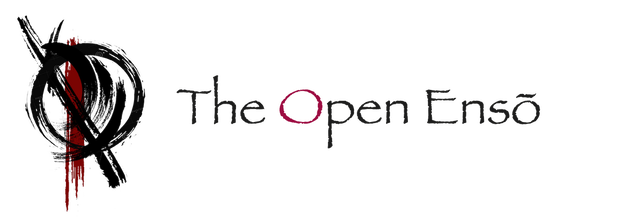
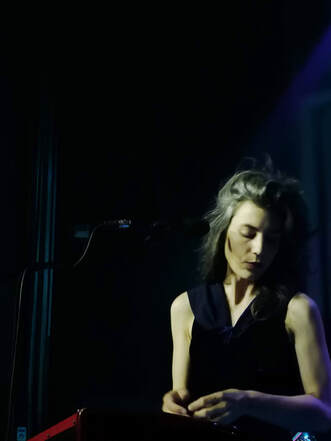
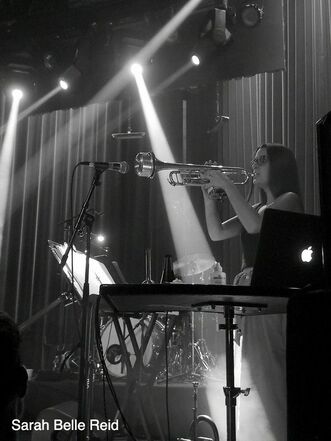
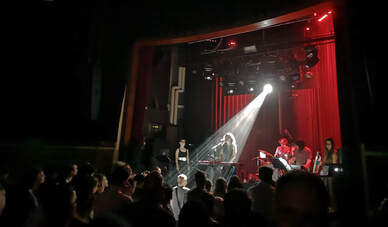
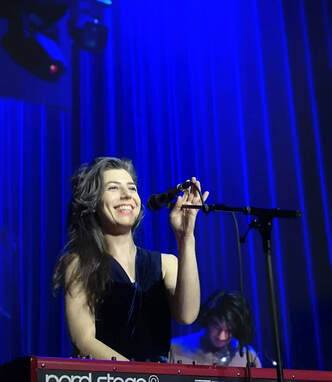
 RSS Feed
RSS Feed
